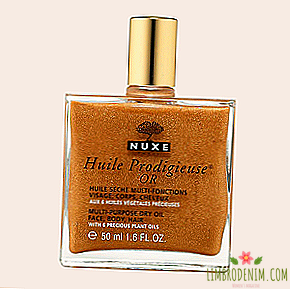The film on the important topic: "Accused" and the conviction of a rape victim
We love movies for various reasons - both as a way to temporarily get away from problems, and as a way to think about them. In the “Great Love Film” rubric we speak clearly about what, and now we will talk about feature films on sharp topics that do not lose their relevance: from racism to domestic violence. Let's start with the drama that brought Oscar to Jodie Foster for the role of a raped girl who decided to get a fair trial for criminals.

After a quarrel with a guy, young waitress Sarah Tobias, played by Jodie Foster, goes to a provincial bar for her friend to tell the news and to recover. It is not the first day that she drinks to relax or calm down, and over the bar she will tip a few more glasses. Sarah will have a tight T-shirt over her naked body with constantly falling shoulder straps, a mini-skirt, and all men will stare at her dance in the center of the hall. In five minutes, she will have a persistent boyfriend with fast hands, in twenty - beaten Sarah with traces of violence all over her body, a bullet will jump out of the bar and run to the hospital to remove traces of someone else’s crime. Instead of flirting after a hard day, gang rape with three guys and a bar full of screaming and cheering rapists rednecks.
"So what, baby? I guess I asked for it myself," reads in the eyes of the photographer from the police and the doctor who will take the beatings. This look Sarah will catch on herself hundreds of times from detectives and court officials, from passers-by who will read a rape article in the newspaper, in the eyes of a friend who until the last will pretend that she hasn’t seen and remembered anything. In the course of the investigation, it turns out that Sarah was involved in drugs, often drinks and smokes marijuana and in general is not a girl of the American dream who is easy to defend before the jury. Sarah is waiting for the well-known re-victimization - the victim is not disdained to shame others, and the court will be a painful journey through the same circles of hell.

The victim of rape is always a victim, even if she smoked and drank before that, didn't put on her underwear and danced sexually

Jonathan Kaplan - a fairly straightforward American director, and, admittedly, not the most outstanding - managed to make a story about the victim, honest and piercing in its typicality, from which it is so easy and customary to make the accused. Only the lawyer of the main character (the performer of her role, by the way, herself suffered from rape) is obvious that in the story of group violence there is no second bottom and the rape victim is always the victim, even if she smoked and drank before, didn't put on her underwear and danced sexually. 1988: Jodie Foster will have to wait three years for her lead role in “The Silence of the Lambs,” but for “Defendants” she will receive her Oscar - the very case when the award can be called a political move.
Sarah, whom she plays without speculation, is that dysfunctional girl with a "dubious reputation" from a van on the outskirts, who is hardly given a brisk, connected and convincing speech. She always hesitates and hesitates, smiles like a child, it is always difficult for her to utter something that gnaws at her, and even at the time of rape she is fettered by fear and cannot say anything but a soft "no" - not like calling for help. Against her background, the rapists — as always, the guys with a “great future” and a silver spoon in their mouth — are eloquent, convincing, and self-confident. In the eyes of public opinion, such people often win: these are the lucky ones from whom the unlucky country girl decided to win the jackpot! Foster herself in her childhood was often the object of harassment and indecent jokes from her older colleagues in Hollywood, and in this role that she plays, the pain of the humiliation experienced on herself, possible even with star status, is read.


Kaplan not only filmed one of the most detailed, painful and repulsive scenes of rape, but also showed agitating, whistling and screaming witnesses in a completely new way. Violence becomes even worse when it turns into a spectacle. In the heat haze of a dumb bar, Sarah will have no intercessors: she will be surrounded only by a circle of silent witnesses and noisy instigators who call the current “show” - that you, baby, relax and enjoy! And the same show will be the trial of Sarah’s statement, where her clients ’lawyers will recall her tight T-shirt, marijuana, wagging her hips and non-prestigious work.
Since 1988, the rhetoric of the accusation of the victim has not changed much: but now to cases similar to the story of Sarah Tobias, thousands of similar ones have been added - about an attack on a date, rape in college or at a party. Classmates or neighbors in the apartment, former or close friends - to prove the fact of rape is still difficult for those who are afraid to hear from friends and even parents "are to blame." Film critic Roger Ebert, referring to “The Accused”, stresses that “verbal sexual harassment — rough in the far bar or frivolous in a daily situation — is a form of violence. It leaves no visible traces, but can make victims feel constrained and unnatural in society. This is a form of incarceration. "

Even the Cosmopolitan magazine, which invented the special term "gray rape" about sex "between yes and no"

“Guys are always like that, and we must be able to take care of ourselves,” not only girls of the Sarah generation grew up with this commandment, but also modern teenage girls, whose parents are trying to protect them from reckless sex, dangerous connections and nightly fun. “What did she think about when she went home with him”, “subconsciously searches for a rapist”, “doesn’t think about security”, “looks vulgar”, “provokes” - the most frequent rhetoric of those who make victims of the accused, no matter whether we are topics of domestic violence, harassment on the street, or harassment within the family. Approximately one of the western video-bloggers joked about it, having collected in one list what women should not do in public space so that there would be no misfortune. Let me tell you a secret, in this way the author of this article was brought up: "The girl, of course, is a pity, but she still has to solve the problems herself, so it’s best not to risk it again." To break this stereotype, it took many years and unfavorable cases from life: as it often happens, the views of the majority are best broken by the unpleasant experience of dear and close ones.
Not only in Russia, about a drunken girl who spent the evening in an institution where they poured her for free, and then became the victim of a rapist, they can say “I’m guilty”, and doctors and policemen will gaze with a displeased grin. Surprisingly, the Cosmopolitan edition, which supposedly officially protects the interests of women, comes to similar conclusions about “self-blame”, which invented a special term - “gray rape” about sex ”between yes and no, or - another interesting formulation -“ sex of unwarranted expectations ” "and" sex tangled messages. " Having described several situations in their article where heroines doubt their sexuality in their personal experience, for some reason they come to old, proven conclusions about the caution of women - something in the spirit of “not wearing tight” and “not dancing”.

The huge debate that erupted on this topic shows that the "gray zone" in sexual crimes - that is, sex, which involved alcohol and drugs - has always existed. But the number of such cases has greatly increased over the past couple of decades with a change in the sexual behavior of both sexes, an active sex life in general university campuses, and the spread of alcohol, drugs and one-night sex among female habits. Arguments about the improper appearance and “blackout” are most often used in court, protecting the rapists and still - and this impresses the jury. The patriarchal culture in which Sarah lives and continues to live, we always assume that "no" is not the final answer. And you just have to put a little more effort, to push, so that "no" turned into "yes." The upsetting statistics on rape and the accompanying wording “it’s my own fault” can be avoided by explaining to young boys and girls that even the quietly said and not very decisive “no” is “no.” In the book "Yes means yes!" The feminist authors Jacqueline Friedman and Jessica Valenti (some passages in Russian can be read here) explain the difference between active consent and imposed sex, which the girl was condemned for, spawned, engaged in sex, manipulating her notions of marital debt or ideas for everything has to be paid. The girls are able to say aloud about their desires - the young poet Anna Binkovitz, who in her stand-board gives a couple of eloquent examples about what we say what we mean, jokes about it. Is there any special costume "I want sex!"? "If I sit at the table with my mom and have dinner and I need salt, I don’t put on the saltcellar suit, but just ask for salt with the help of words. Do you want an uncooked steak? Wash blood before entering the steakhouse."

Produced by The New Yorker, Kaitlin Kelly tweets that mimic the rhetoric of the victim's accusers when it comes to prosaic wallet theft to show how absurd this moralism actually looks like: “It seems that guy stole my wallet!” - "Are you sure that you yourself did not give him your wallet and now just shy to admit it? Maybe you just misunderstood each other?" The case of Sarah Tobias, which actually occurred in one of the American bars five years before the filming of "The Accused", is the very group rape of strangers with bodily harm, which is always a chance to bring to court with due persistence in countries with non-corrupt legislation . But this case is a utopia for many countries of the world where it is difficult to remove beatings, to find loyal police officers and a caring attorney. How many stories remain unanswered, because the abuser was a boyfriend, former, relative or close friend. And most of the girls with the fate of Sarah do not dare to go to court, just to not worry about their tragedy again and not see the conviction in the eyes of others. It is important to remember that these eyes should not be ours.





